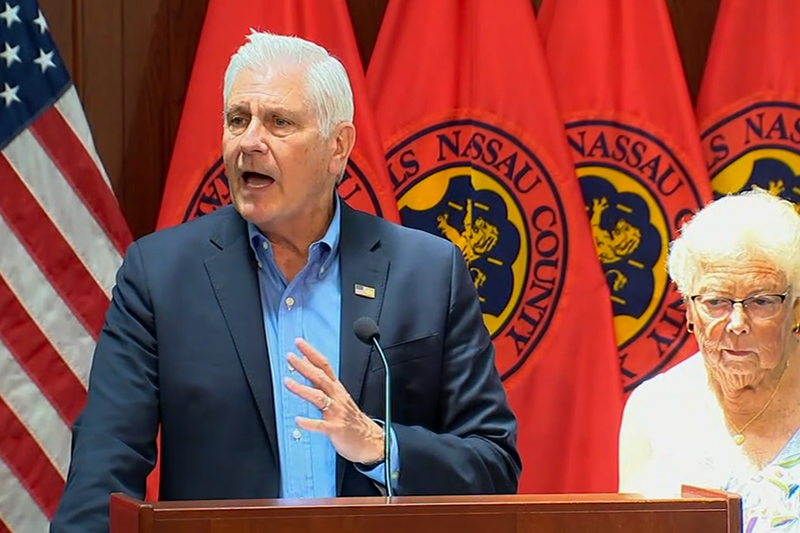South Carolina Bans Gender-Affirming Care
South Carolina Gov. Henry McMaster signed a ban on gender-affirming care for transgender youth and some adults.

On Tuesday, South Carolina Gov. Henry McMaster signed a ban on gender-affirming care for transgender minors into law.
The law took effect immediately and officially made South Carolina the 25th state to place restrictions on gender-affirming care.
Under South Carolina’s law, health professionals can be disciplined for prescribing gender-affirming treatments, such as puberty blockers, hormones, or gender confirmation surgery, to patients under the age of 18 seeking to transition.
The law also requires school administrators to notify parents or guardians if a child identifies by a gender that does not match their assigned sex at birth, or asks to use a name or nickname other than their legal name or pronouns that do not match the sex on their original birth certificate.
The bill was amended in the State Senate to allow mental health counselors to talk about banned treatments — and even mention places where access to such treatments is not banned — as a form of free speech.
It contains exemptions allowing intersex children, as well as cisgender children who experience precocious puberty, to receive puberty blockers or hormonal treatments.
Additionally, the bill prohibits the use of public dollars — including Medicaid and insurance provided to government employees — from being used to cover the costs of transition-related care for any individual, including transgender adults, who must pay out of pocket should they want care.
Earlier this year, McMaster said he supported the ban on gender-affirming treatments in order to “keep our young people safe and healthy,” arguing that some transgender youth may later change their identity or experience regret if they move to transition too rapidly or hastily.
“If they want to make those decisions later when they’re adults, then that’s a different story, but we must protect our young people from irreversible decisions,” McMaster said at the time.
Writing on X, McMaster noted that he would be holding a ceremonial bill signing event next week to tout the bill’s benefits.
“I signed the Help Not Harm bill into law, which protects our state’s children from irreversible gender transition procedures and bans public funds from being used for them,” he wrote.
I signed the Help Not Harm bill into law, which protects our state’s children from irreversible gender transition procedures and bans public funds from being used for them. I look forward to joining legislators and supporters at a ceremonial bill signing in the Upstate next week. pic.twitter.com/7RTDYGGGDU
— Gov. Henry McMaster (@henrymcmaster) May 21, 2024
Critics argued that the bill infringes on the right of parents to decide on what health treatments their children receive.
It tramples the rights of transgender adults who are state employees, dependents of state employees, or Medicaid recipients to decide which health care they receive by denying them coverage for treatments that their doctors have deemed medically necessary.
Additionally, critics slammed the bill for misrepresenting transition-related treatments as experimental, haphazard, or too readily prescribed, arguing that people under the age of 18 do not undergo gender confirmation surgery in South Carolina, and that hormone treatments only begin after extensive consultations with medical providers.
The Campaign for Southern Equality noted that some of the bill’s provisions, particularly those dealing with Medicaid and state employee insurance coverage, may be unconstitutional, citing recent decisions by the 4th U.S. Circuit Court of Appeals — under whose jurisdiction South Carolina falls — finding that a West Virginia Medicaid ban on coverage for gender-affirming care and a similar exclusion in North Carolina’s state employee health plan were discriminatory.
The Campaign for Southern Equality also noted that transgender individuals in South Carolina are eligible to apply for support from the Southern Trans Youth Emergency Project, which seeks to support trans youth and their families whose access to medical care has been hampered by various state bans.
Through the program, families can receive information about obtaining gender-affirming treatments in states without bans, assistance in connecting with out-of-state medical providers, and grants of up to $500 to assist them in traveling elsewhere to obtain the care they need.
Support Metro Weekly’s Journalism
These are challenging times for news organizations. And yet it’s crucial we stay active and provide vital resources and information to both our local readers and the world. So won’t you please take a moment and consider supporting Metro Weekly with a membership? For as little as $5 a month, you can help ensure Metro Weekly magazine and MetroWeekly.com remain free, viable resources as we provide the best, most diverse, culturally-resonant LGBTQ coverage in both the D.C. region and around the world. Memberships come with exclusive perks and discounts, your own personal digital delivery of each week’s magazine (and an archive), access to our Member's Lounge when it launches this fall, and exclusive members-only items like Metro Weekly Membership Mugs and Tote Bags! Check out all our membership levels here and please join us today!


























You must be logged in to post a comment.